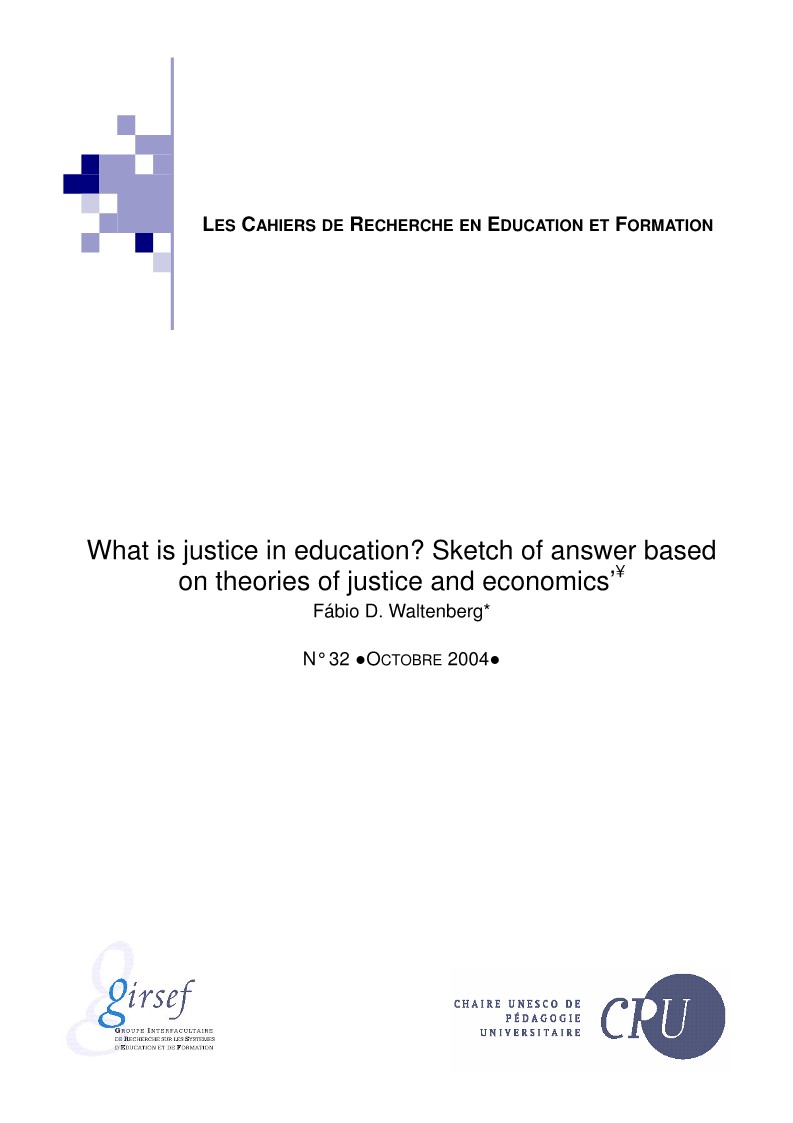No 32 (2004): What is justice in education? Sketch of answer based on theories of justice and economics’

What is justice in education? How can we evaluate whether given distributions of educational inputs or educational outcomes are just or not? How should a society distribute its educational resources? How can we evaluate the level of (un)fairness of a schooling system? In this paper, we try to provide a basic framework for thinking about these normative questions in what we consider to be a rigorous way. In order to accomplish such task, we interrelate different strands of literature, namely: theories of distributive justice, developed by political philosophers, concepts and tools used in microeconomics (especially in welfare economics), and insights from positive economics of education. We present, illustrate, and criticize what ‘justice in education’ is, according to four normative positions – utilitarianism, libertarianism, egalitarianism and egalitarian liberalism.



